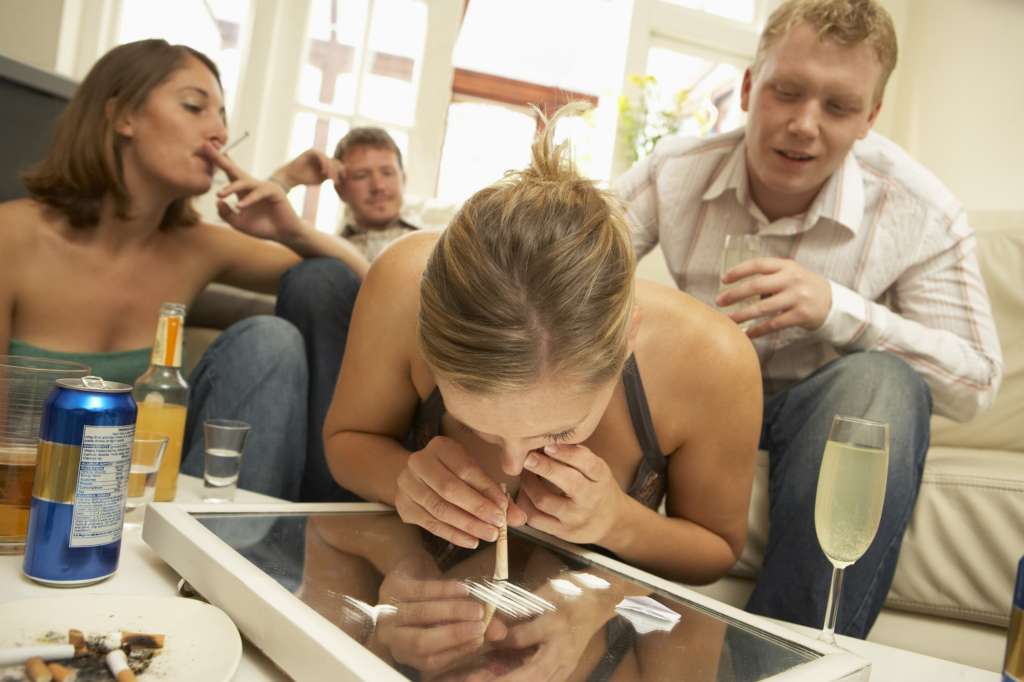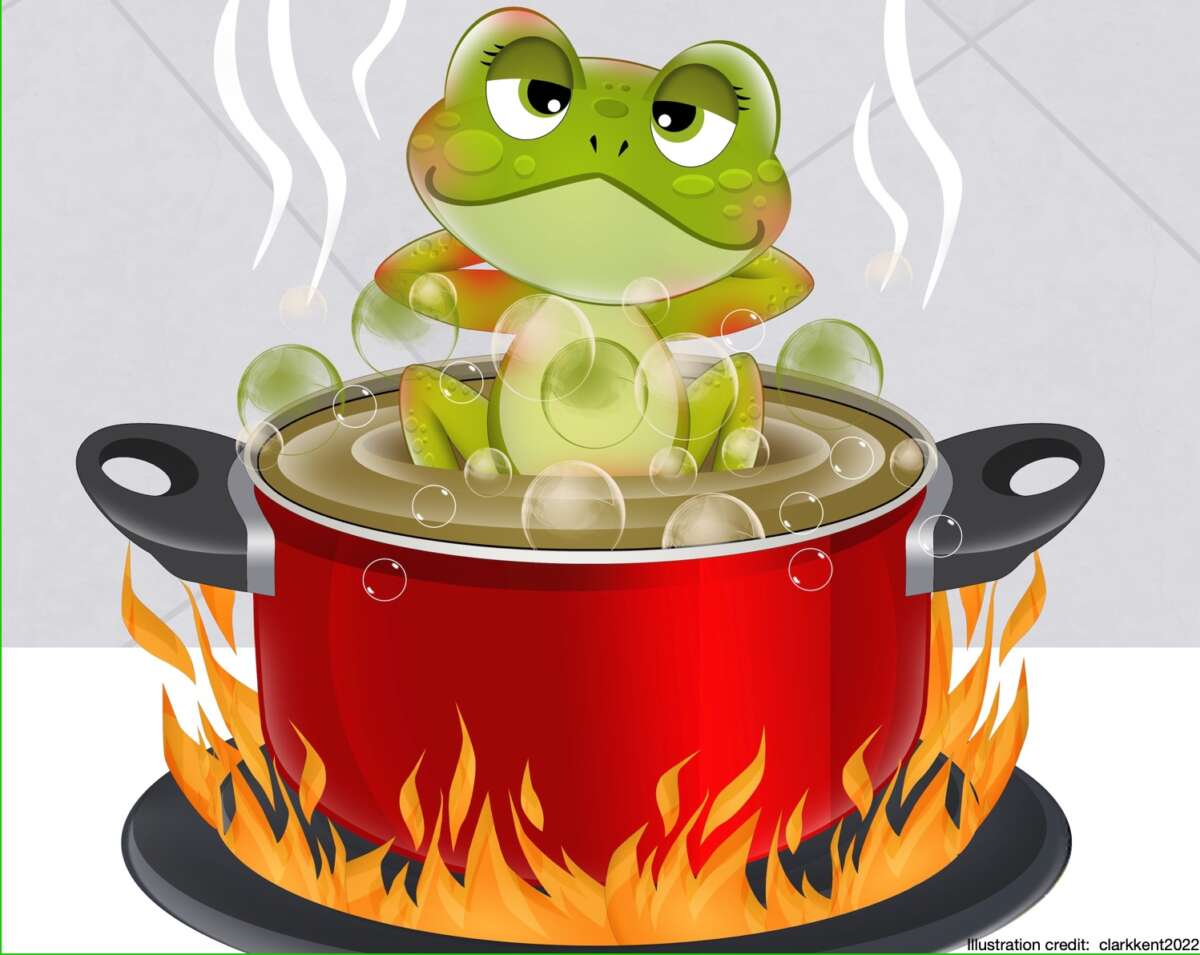One of the more overused terms in the U.S. today is “slippery slope.” It refers to a decision a person might make that has unintended consequences. And, while many consider the term to be fallacious, it is not necessarily so. Missing a day of school because you overslept does not mean you’ll eventually wind up in prison if you extrapolate the likely consequences. But a failing grade for academic dishonesty such as cheating may mean you won’t graduate if your college has an honor policy. And there are other applications for the term as well.
If I as a classroom teacher have a passing grade set at 59.5 for a “D,” what do I do with a student who has a 59.4. My posted grading rubric states that this student will receive an “F.” But, what if that student approached me to say they were a few days late turning in their research paper to me because of a family emergency and lost five points which, had they submitted the paper on time, they would have wound up with a 64 instead of 59.4 for a course grade? If I am tempted to waive the rules for one student, then that might put me on a slippery slope with other students who may believe they have equally valid reasons for not submitting their assignment on time. For example, what if another student with a course grade of 59.4 approached me about their grade. but I let their failing grade stand? That is a slippery slope, sometimes best described as “In for a penny, in for a pound” if I feel obligated to arbitrarily adjust the second student’s grade as well.
The slippery slope can be very insidious. There’s a urban legend that says if you toss a frog in a kettle of boiling water, he will immediately jump out (if he is able to and I hope no one reading this puts some poor amphibian to the actual test.) But, goes the tale, if you put a frog in 100 degree water and slowly crank it up to 212 degrees (boiling at sea water,) degree-by-degree, the frog will have become slowly acclimated to the increasing temperature of the water and will not attempt to abandon the kettle. This may not be the best example of a slippery slope but . . .What has happened in this scenario is that the hypothetical frog has developed some sort of desensitization to heat over time. And by the time the frog understands he is in peril, it is too late.
A plastic challenge
The sliipery slope can be very alluring. This fall, a new class of students (the class of 2027) will be starting college or university. They will get all sorts of information and offers during the first few weeks of the semester. Some offers may involve credit cards with marginal credit limits (perhaps $2,000.) Some students may accept a credit card and not use it at all, saving it for an emergency or use it wisely if at all. Other students, who are enjoying their freedom away from home and their parents for the first time may apply for several cards. They may have the best of intentions, but eventually they max out their cards and are in debt with high interest rates and no source of income. That introductory offer is for some a slippery slope. If a student knew he might ring up $5,500 dollars of debt with monthly payments of $550.00, they might not have applied for the cards. But charging $675.00 for textbooks, $250.00 for football tickets, $1,080 for Christmas, $990.00 for Spring Break slowly but surely adds up.
Wasted/Stoned
Some people drink. Some don’t, but at some point they are tempted or pressured to drink. Alcohol, by itself, is not very palatable to a person who never consumes alcohol. Studies have have concluded that wine coolers and other sweetened, fruity drinks containing alcohol are actually “gateway drugs” because they develop a taste for alcohol in the unsuspecting young adult. I’ve sat on a therapeutics committee at a hospital many years ago where the same concern was expressed about some of the more common elixirs given to small children for upper respiratory infections, because they had some alcoholic content added to them. These are medicines given to children who are too small to take pills. In these cases, alcohol was used to make the active ingredients in the syrup more effective. The concern of the committee was that we were creating a taste for alcohol in small children who needed these products.
Some people drink beer or wine and never progress to other alcoholic beverages, but many do.
The same is true for marijuana. Do people who smoke pot go on to snort cocaine or shoot meth? Do people taking muscle relaxers or hydrocodone wind up on fentanyl? Certainly not in every case. Every person is different, but these situations can be slippery slopes for many. The slippery slope can lead to addiction.
Geopolitics
The current Russian invasion of Ukraine can also serve as an example of a slippery slope. Here, it can have deadly consequences. President Vladimir Putin, with dreams of the Russian empires of the past, begins to carve up modern, sovereign Ukraine. First, in 2014, the Crimea and parts of southeastern Ukraine. In 2022, he decides he wants to take even more territory from that country, but he miscalculates. He sees the Ukraine as weak and ineffective. He believes that NATO will stand aside for the sake of appeasement and keeping their homes warm in the winter thanks to Russian oil. Putin believes that the Ukranians–at least in the east–will greet him as a liberator. On all three assumptions (and perhaps more) he is incorrect. The Ukranian military puts up a fight. Russians in Ukraine are shocked by Russia’s brutality. NATO starts to upgrade the defensive capabilities of Ukraine, pouring in weapons, providing intelligence and so forth. Putin resorts to hypersonic missiles and drones and the West provides Ukraine with defensive capabilities to offset this escalation, and also upgrades Ukranian tanks and missiles to state of the art weaponry. Now, Putin moves tactical (battlefield) nuclear weapons to a frontline ally (Belarus) while NATO countries prepare to ship F-16 fighter aircraft to Kjiv. Analysts are saying that the Kakhovka Dam was blown up by Russia, perhaps due to another miscalculation. What, then, will the next miscalculation be? A NATO jet shot down? Chemical weapons release? Nuclear attack? The slippery slope for the West is the same as it is for Russia. Having invested so much, you can’t backdown. Russia could end this war in just a few days by pulling out their forces, but are they willing to face war crime trials, reparations for everything they destroyed in Ukraine? On the other hand, if the West folds, then Ukraine will be lost and certainly Russian will move against Moldova (there are already Russian soldiers there) and other countries and become the dominant power in Europe to the exclusion of NATO.
Sin
Sin, itself, is a slippery slope as well. Very few people start off by “diving in” over their head, though that’s been known to happen. Often, people take “baby steps.” A child shoplifts some candy, then they start stealing larger, more expensive things (perhaps someday graduating to GTA.) Or, general dishonesty leads to cheating on one’s taxes, spreading lies about your neighbor. Lying is a common problem (and a sin.) Children lie regularly. And we adults lie to them on occasion. Sometimes we excuse it by calling some falsehoods “white lies.” A person who continues to lie. however, may eventually lose executive control when it comes to telling the truth. This morning, I was thinking anout how people get caught up in the occult. They become fascinated with supernatural-themed movies or books about vampires, werewolves, ghosts and so on. Next, they practice talking to the dead, like young girls are known to do on occasion with a ouija board at a slumber party. Some become hooked on horoscopes, numerology, getting involved with charms and curses and so on. That is definitely a slippery slope. With each new practice, with each drag on a blunt, with each boosted car, or snort of coke it becomes harder to quit. But the good news is you that you can quit.

Consider this passage from chapter 5, verses 6ff. of Romans (New Testament of the Bible):
6 You see, at just the right time, when we were still powerless, Christ died for the ungodly. 7 Very rarely will anyone die for a righteous person, though for a good person someone might possibly dare to die. 8 But God demonstrates his own love for us in this: While we were still sinners, Christ died for us.
9 Since we have now been justified by his blood, how much more shall we be saved from God’s wrath through him! 10 For if, while we were God’s enemies, we were reconciled to him through the death of his Son, how much more, having been reconciled, shall we be saved through his life! 11 Not only is this so, but we also boast in God through our Lord Jesus Christ, through whom we have now received reconciliation.
12 Therefore, just as sin entered the world through one man, and death through sin, and in this way death came to all people, because all sinned—
13 To be sure, sin was in the world before the law was given, but sin is not charged against anyone’s account where there is no law.14 Nevertheless, death reigned from the time of Adam to the time of Moses, even over those who did not sin by breaking a command, as did Adam, who is a pattern of the one to come.
15 But the gift is not like the trespass. For if the many died by the trespass of the one man, how much more did God’s grace and the gift that came by the grace of the one man, Jesus Christ, overflow to the many! 16 Nor can the gift of God be compared with the result of one man’s sin: The judgment followed one sin and brought condemnation, but the gift followed many trespasses and brought justification. 17 For if, by the trespass of the one man, death reigned through that one man, how much more will those who receive God’s abundant provision of grace and of the gift of righteousness reign in life through the one man, Jesus Christ!
18 Consequently, just as one trespass resulted in condemnation for all people, so also one righteous act resulted in justification and life for all people. 19 For just as through the disobedience of the one man the many were made sinners, so also through the obedience of the one man the many will be made righteous.
20 The law was brought in so that the trespass might increase. But where sin increased, grace increased all the more, 21 so that, just as sin reigned in death, so also grace might reign through righteousness to bring eternal life through Jesus Christ our Lord.
Notive in verse 6 who Christ died for. He died for the ungodly. Not the cream of the crop of high society. Not the Jewish priesthood or the Romans primarily. He died for lost sheep like you and me. In verse 10 St. Paul writes that just as we brought back in union with God through the death of Jesus and now we have life because Jesus rose. Verse 12 tells us that we’re all sinners, whatever our situation, whatever our motives, regardless of the good that we do. We are saved through the grace of God. In verse 20 Paul writes: But where sin increased, grace increased all the more. . .” I understand this to me that a person who does good deeds is a sinner and needs “X” amount of grace to be reconciled with God and to go to heaven when they die. However, a person in prison who hurt another person needs “2X” meaning because the sin was greater, grace needed to forgive was necessarily greater. Adolph Hitler might have needed “6,000,000X for the people he killed, but grace was still available to him had he taken it. Some of the Nazis did. But others had hearts of stone by then and did not.
It’s folly to try to quantify sin and grace, but I think I explained it in a somewhat understandable way for those unfamiliary with the concepts. Be sure to message me in the comment section if you’d like more information.



